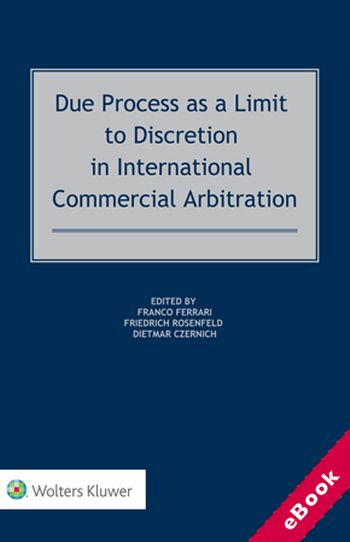
The device(s) you use to access the eBook content must be authorized with an Adobe ID before you download the product otherwise it will fail to register correctly.
For further information see https://www.wildy.com/ebook-formats
Once the order is confirmed an automated e-mail will be sent to you to allow you to download the eBook.
All eBooks are supplied firm sale and cannot be returned. If you believe there is a fault with your eBook then contact us on ebooks@wildy.com and we will help in resolving the issue. This does not affect your statutory rights.
Due Process as a Limit to Discretion in International Commercial Arbitration is a nonpareil book that contains an expansive analysis of due process in key jurisdictions around the world. Owing to the dearth of consistent case law on due process, recalcitrant parties have been motivated to misuse due process arguments as a strategic tool, thereby putting at risk the prospect of obtaining an enforceable award in expeditious proceedings. Countering this inherent danger, this unique book offers a comprehensive study on due process as a limit to arbitral discretion.
What’s in this book:
Based on country reports prepared by leading arbitration practitioners and academics and a detailed general report authored by the editors, this book guides through the relevant case law on due process as a limit to discretion in arbitration and explores how courts in major arbitration jurisdictions apply due process guarantees when performing their post-award review. The following matters are elucidated:
A significant addition to the debate regarding the so-called due process paranoia affecting arbitral tribunals, this exceptional book furnishes not only practical guidelines for the maintenance of a balance between due process and efficiency but also shows how to counteract the misuse of due process arguments in arbitration proceedings. As such, it will be highly appreciated by counsel, arbitrators, and judges from all countries, as well as by academics and researchers concerned with international commercial arbitration.